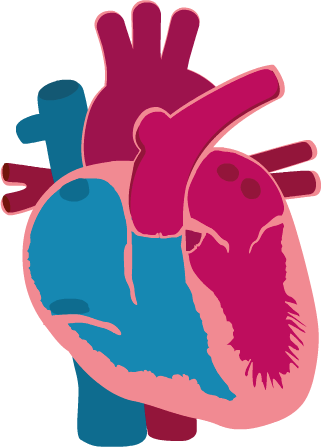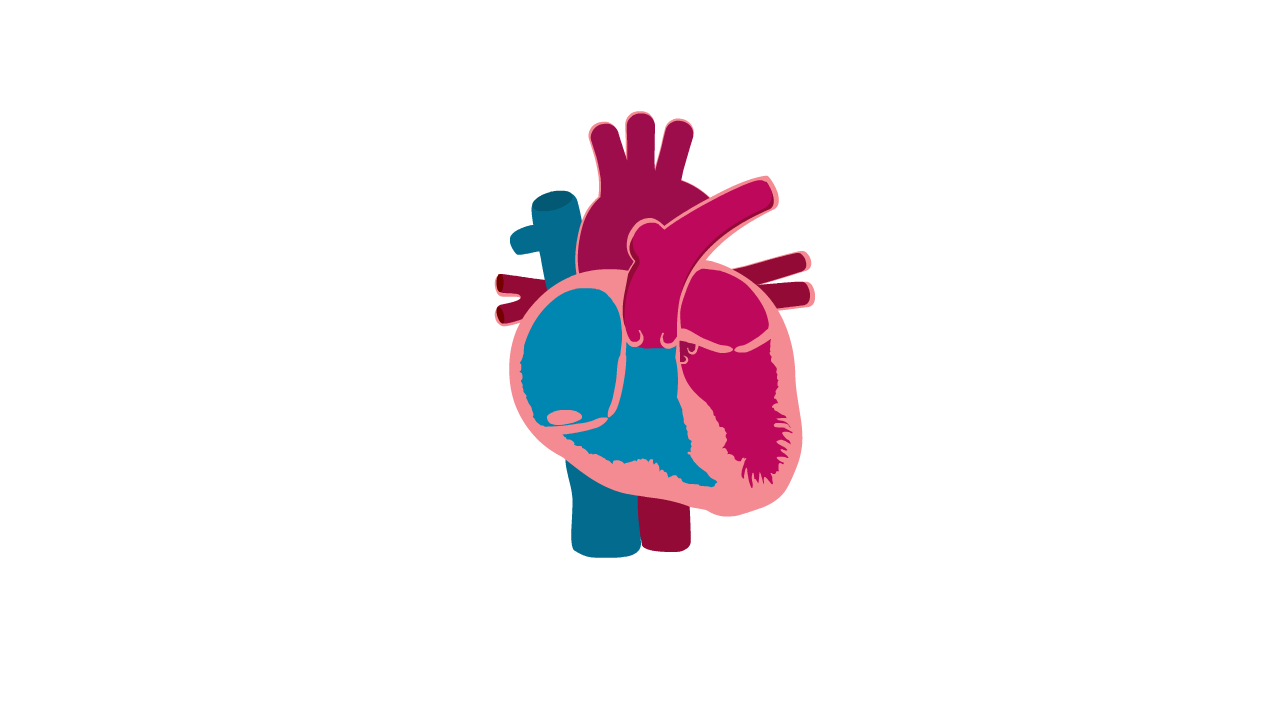
What is Left Ventricular Non-Compaction (LVNC) / Left Ventricular Hypertrabeculation?
- Trabeculations are a normal finding, but some people have an excess amount. This has been referred to as 'non-compaction' or 'hypertrabeculation'.
- Left Ventricular (LV) hypertrabeculation is seen within the muscular wall of the heart, which appears to be 'spongy' or non-compacted.
- LV hypertrabeculation can occur either in isolation or in association with thickening (hypertrophy), enlargement (dilation) and / or reduced pumping ability of the heart.
- If you have LV hypertrabeculation, you will only be diagnosed with cardiomyopathy if your heart function is impacted.
- Hypertrabeculation can be a transient (temporary) finding and does not always develop into a cardiomyopathy.
You are likely only to have symptoms if you have LV hypertrabeculations and cardiomyopathy. Not everyone has symptoms (some people never have any symptoms). Symptoms would be specific to the type of cardiomyopathy you have. They can include:
- Breathlessness
- Fatigue (extreme tiredness)
- Feeling dizzy or light-headed
- Palpitations
- Loss of consciousness
If someone has a family member with cardiomyopathy, or they have symptoms that suggest they may have a heart condition, they may be referred for various tests. This may include the following:
- Medical history and family tree - to look at symptoms and whether other family members have this condition (which can be genetic).
- Physical exam - to see what physical symptoms, if any, are experienced.
- ECG (electrocardiogram) - to look at electrical activity in the heart and see if abnormal heart rhythms are happening.
- Echo (echocardiogram) – to look at the function of the heart and movement of the blood as it flows through the heart.
- MRI (Magnetic Resonance Imaging) scan - this type of scan provides more detail on the structure of the heart muscle, as well as the function.
Treatment is guided by the results of diagnostic tests and the symptoms, alongside the diagnosis of a specific type of cardiomyopathy (HCM, DCM / NDLVC, ARVC). Treatment is therefore individualised based on the symptoms an individual is experiencing.
Treatment may include medication, implantable devices, surgery and lifestyle management.
Heart with LV hypertrabeculation

Support for LVNC / LV Hypertrabeculation
We offer support for people with a diagnosis of LVNC/ LV hypertrabeculation and their families, friends & loved ones. The group is hosted by Cardiomyopathy UK specialist nurse Jayne